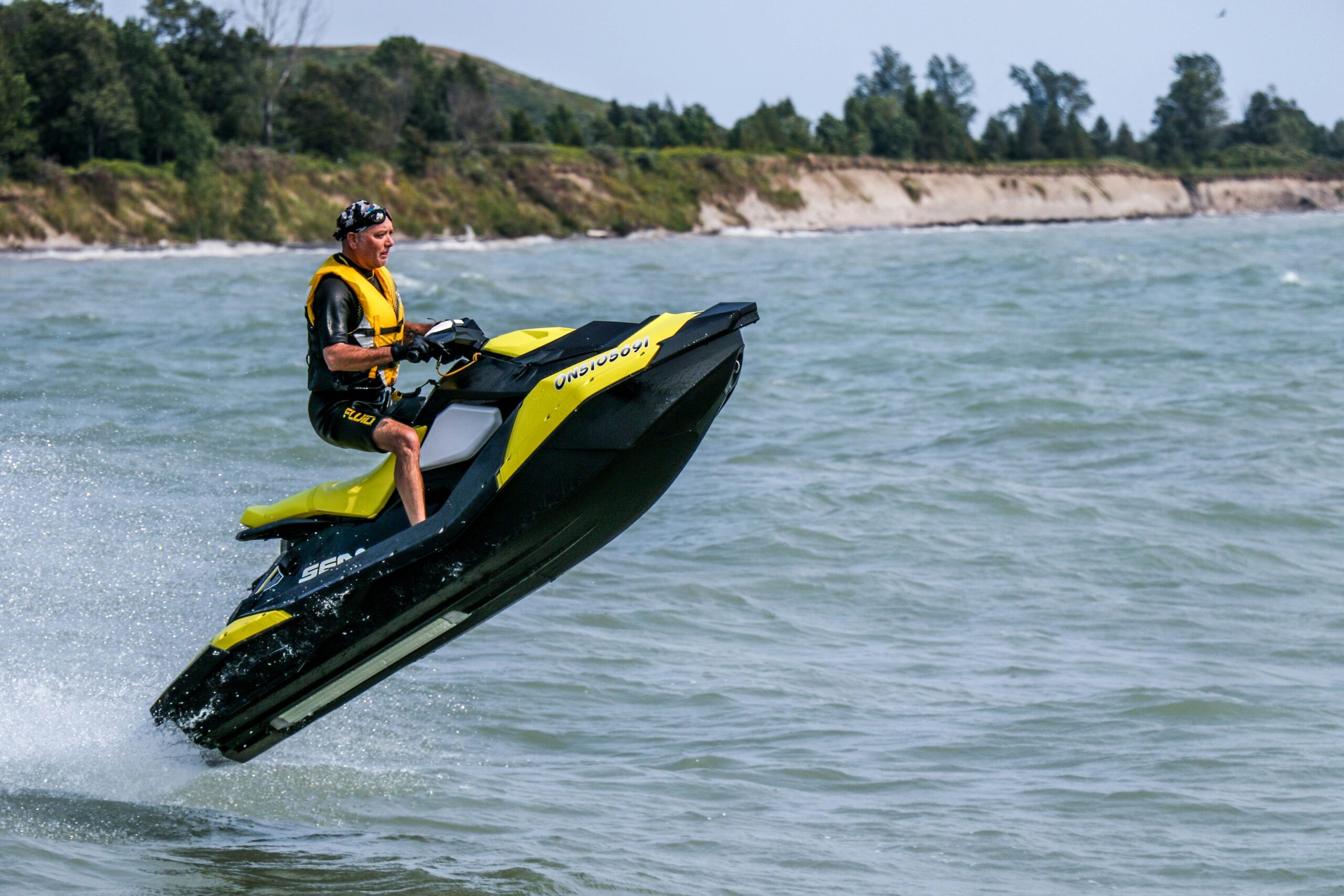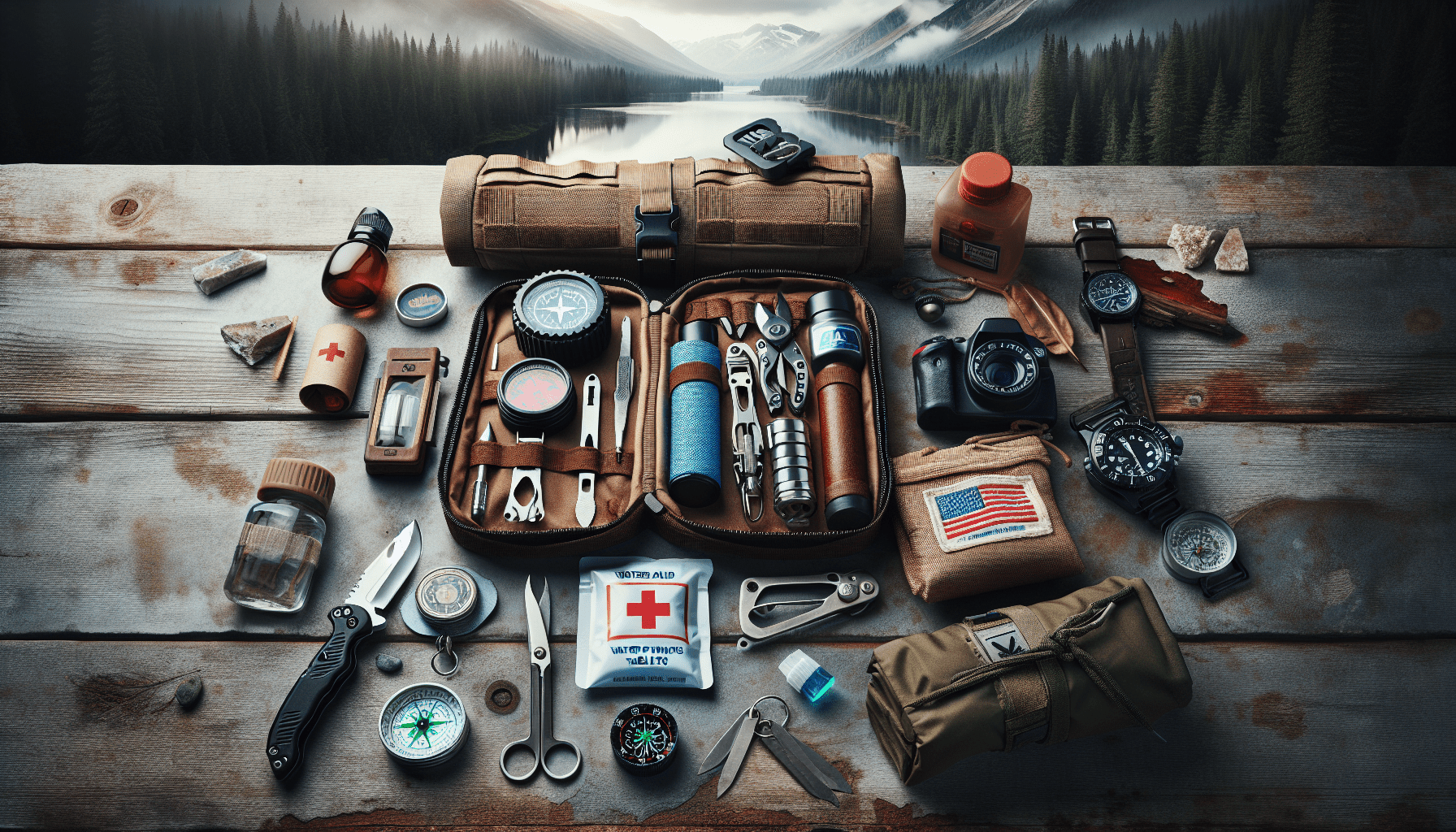You never know when life might throw unexpected challenges your way, and being prepared can make all the difference. In the article “What Are Some Important Survival Skills For Long-term Emergencies?”, you’ll discover essential skills that could turn a dire situation into a manageable one. From finding and purifying water to creating shelter and mastering first aid, these techniques are vital for ensuring you and your loved ones stay safe and secure. Whether you’re an outdoor enthusiast or simply looking to be better prepared, this guide will equip you with the knowledge you need to face any long-term emergency with confidence. Have you ever found yourself wondering what it would take to survive in the face of a long-term emergency? The idea can seem daunting, but by understanding and practicing some key survival skills, you’ll be well-prepared to face any challenge that comes your way. Let’s get right into it and explore some of the most important survival skills you’ll need for long-term emergencies.

Understanding the Basics of Survival
Long-term survival hinges on four primary needs: water, food, shelter, and security. Mastering skills in these areas will give you a solid foundation to handle most situations.
Skill #1: Water Procurement and Purification
Water is essential for life, and finding a reliable source is a top priority in any survival situation. Here are some methods and tips for securing clean water:
Finding Water Sources
- Natural Sources: Streams, rivers, lakes, and ponds are excellent options.
- Rainwater: Collecting rainwater can provide a clean, renewable source.
- Plants: Some plants store water. Look into techniques like tapping trees or collecting dew.
Purification Methods
- Boiling: Boil water for at least one minute to kill pathogens.
- Filtration: Use commercial filters or make a rudimentary one with sand, charcoal, and gravel.
- Chemical Treatment: Use iodine tablets or chlorine drops to purify water.
| Purification Method | Pros | Cons |
|---|---|---|
| Boiling | Highly effective | Requires fuel and time |
| Filtration | Removes particles | Filters can become clogged |
| Chemical Treatment | Quick and easy | Can alter taste, limited supply |
Skill #2: Food Procurement and Preservation
In a long-term emergency, securing and preserving food will be crucial for your survival.
Hunting and Gathering
- Foraging: Learn to identify edible plants, nuts, and berries. Make sure you know the toxic lookalikes.
- Fishing: Knowing how to fish in various water bodies can provide a steady food source.
- Hunting: Understanding local wildlife and having the skills to trap or hunt can be lifesaving.
Food Preservation Techniques
- Drying: Solar drying or using a fire can help preserve meats and fruits.
- Canning: If you have the necessary equipment, canning can extend the shelf-life of many foods.
- Salting: An ancient method especially effective for meats and fish.
| Preservation Method | Pros | Cons |
|---|---|---|
| Drying | Easy, low tech | Requires sunlight or fire |
| Canning | Long shelf-life | Requires equipment |
| Salting | Simple, effective | Needs a lot of salt |
Skill #3: Building and Maintaining Shelter
Your shelter is your fortress against the elements and potential threats. Building a sturdy and reliable shelter is essential.
Types of Shelters
- Natural Shelters: Caves or fallen tree structures.
- Man-Made Shelters: Lean-tos, A-frame shelters, and debris huts.
- Improvised Shelters: Tarp and rope can make a quick, effective shelter.
Insulation and Weatherproofing
- Insulation: Use leaves, grass, or pine needles to insulate your shelter.
- Windproofing: Pile rocks or logs around your shelter to protect from strong winds.
- Waterproofing: Line the roof with large leaves or a tarp to keep dry.
Skill #4: Fire-making Techniques
Fire provides warmth, a cooking source, and a means of signaling for help.
Fire-starting Methods
- Friction: Using a bow drill or hand drill.
- Spark-based: Flint and steel or a spark rod.
- Chemical: Fire starters like ferro rods or magnesium blocks.
Maintaining a Fire
- Tinder: Fine, flammable material like dry grass or leaves.
- Kindling: Small sticks and twigs.
- Fuel: Larger logs or branches for sustained burning.
| Fire-starting Method | Pros | Cons |
|---|---|---|
| Friction | No tools needed | Difficult, time-consuming |
| Spark-based | Effective, reliable | Requires a tool, skill |
| Chemical | Quick, easy | Need to carry materials |
Advanced Survival Skills
Basic skills can get you started, but advanced skills will ensure you not only survive but thrive during long-term emergencies.
Skill #5: First Aid and Medical Knowledge
Understanding basic medical and first aid can make a significant difference in an emergency situation.
Basic First Aid Skills
- CPR: Keep blood and oxygen circulating until professional help arrives.
- Wound Treatment: Clean and bandage wounds to prevent infection.
- Splinting: Immobilize injuries to prevent further damage.
Skill #6: Navigation without GPS
Knowing how to navigate without modern technology can help you find your way in unknown territory.
Techniques
- Map and Compass: Basic skills in reading topographic maps and using a compass.
- Natural Navigation: Using the sun, stars, and natural landmarks to find your way.
Skill #7: Defensive Skills
Defending yourself and your resources can be crucial, especially as resources become scarce.
Self-defense Techniques
- Hand-to-hand Combat: Basic martial arts can help you fend off attackers.
- Weapon Training: Knowing how to safely use and maintain weapons like knives, bows, or firearms.

Psychological Preparedness
A strong mindset is as crucial as physical skills in a survival scenario. Staying mentally prepared can be the difference between success and failure.
Skill #8: Stress Management
Stress and panic can cloud your judgment, making a bad situation worse.
Techniques
- Deep Breathing: Helps lower heart rate and promotes calm.
- Grounding Exercises: Focus on your senses to stay in the present moment.
- Visualization: Imagine positive outcomes to boost morale and focus.
Skill #9: Problem-solving and Adaptability
Think creatively to solve problems and adapt to changing circumstances.
| Problem-solving Steps | Description |
|---|---|
| Identify the Problem | Clearly define the issue. |
| Brainstorm Solutions | Come up with multiple ways to solve it. |
| Evaluate Options | Consider the pros and cons of each solution. |
| Implement Plan | Take action based on the best option available. |

Community and Social Skills
In a long-term emergency, working with others increases your chances of survival. Social skills are invaluable for forming alliances and working collectively.
Skill #10: Communication
Effective communication ensures smooth group dynamics and coordinated efforts.
Techniques
- Clear Instructions: Be straightforward and concise.
- Active Listening: Listen to understand, not just to respond.
Skill #11: Leadership and Teamwork
Strong leadership and teamwork can turn a dire situation into a manageable one.
Attributes of Good Leadership
- Decision-making: Quick, well-informed decisions keep the group moving forward.
- Empathy: Understanding and caring for the needs of group members.

Continuous Learning and Practice
Survival skills should not be a one-time acquisition. Continuous learning and practice help you stay sharp and ready.
Skill #12: Practice and Drills
Regularly practicing your survival skills ensures you’re ready when you need them.
- Simulation Drills: Practice in controlled environments to simulate real situations.
- Skill Workshops: Attend workshops and training sessions to keep your knowledge up to date.

Final Thoughts
Preparing for long-term emergencies can seem overwhelming, but breaking it down into manageable pieces makes it much more approachable. Remember, the most important tools at your disposal are your skills and knowledge. Review and practice these survival skills regularly to ensure you and your loved ones are prepared for whatever the future holds. Stay safe and stay prepared!

